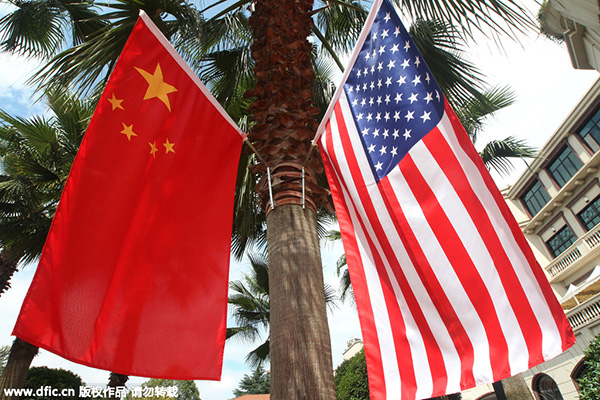 |
|
Trade volume between China and the US hit $441.6 billion in the first three quarters of the year, surpassing the $438.1 billion in trade between Canada and the US. [Photo/IC] |
In the past year, the growing pressure on US President Barack Obama's foreign policy due to the unfolding US presidential race cast a shadow on US-China ties despite some achievements.
The international situation and diplomatic practices in the passing year, to a large extent, confirm this contention. Some impartial American scholars agree to it because of the global issues the US faces, and wonder why the US has gone all out looking for "adversaries" in every corner of the world. Also, a number of such scholars believe that whether China and the US can avoid a confrontation largely depends on whether the US can rethink its "dominant power" status.
The world is undergoing profound changes, and that includes China's rise. The changes, however, have made some people in the US nervous, according to some American scholars. The US has got accustomed to being the world's most powerful country. But the fact is, the US' power has been declining. And these people attribute the development to the weakening US leadership and argue that a strong leadership will help restore Washington's unchallenged position in the world.
Needless to say the presumption is unrealistic. A sagacious analysis of the situation, however, can help the US rethink its real position in the world. Regrettably, US decision-makers have failed to read the vicissitudes of the times and still want to maintain world peace under Washington's leadership and change other countries by forcing them to adopt the US model of "democracy".
The world today is different from what the US imagines it to be. Countries, including the powerful ones, will prosper if they follow the general world trend and falter if they go against the tide. The trend suggests the developing world as a whole will continue to rise because emerging countries now contribute more than 50 percent to world economic growth. Even some Westerners admit that no major world issue can be resolved without the participation of big countries such as China, India and Brazil.
Despite all this, there is hardly a country that doesn't want to maintain and develop good ties with the US. The BRICS countries expect smooth cooperation with the US. Russia may be determined to rid Syria of terrorists, but it has still made it clear that it wants cooperation with the US. China's willingness to cooperate with the US is also beyond doubt. But the problem is, the US has not made appropriate changes in its stance and often takes actions without paying attention to other countries' interests.
Because of China's consistent efforts, Beijing and Washington have made notable achievements in economic, military and cultural fields, and these hard-won achievements should be cherished by both sides. But by being unnecessarily worried that China will challenge its hegemonic status, the US has been making moves to contain China on various fronts. Apt examples are the US' tough and even provocative stance and actions on the South China Sea issue.
The ever-increasing interdependence of China and the US should have led to better bilateral ties. And with many US allies, including Britain, Canada and Australia, showing greater interest in cooperating with China, one wonders why the US cannot do the same when it comes to its relationship with China.
The author is executive director of the Strategy Study Center, China Foundation for International Studies.

I’ve lived in China for quite a considerable time including my graduate school years, travelled and worked in a few cities and still choose my destination taking into consideration the density of smog or PM2.5 particulate matter in the region.